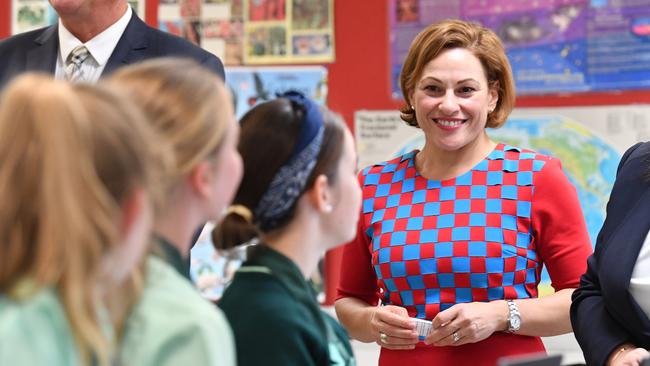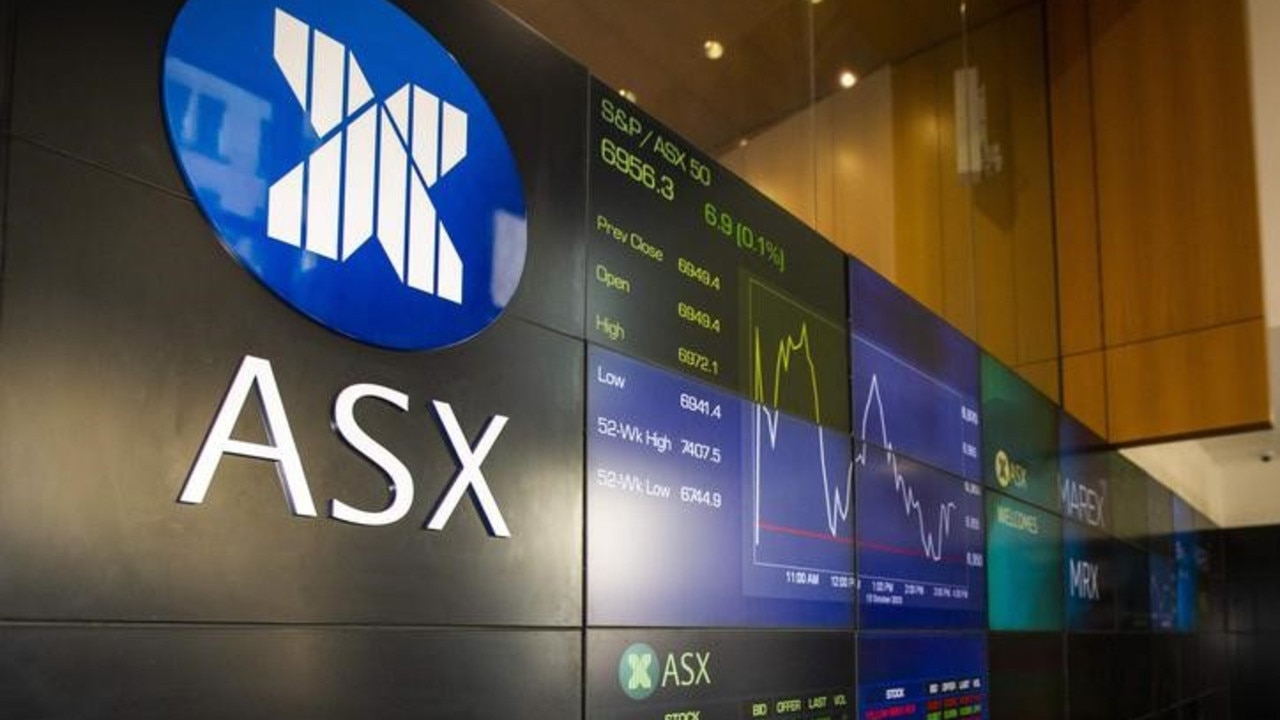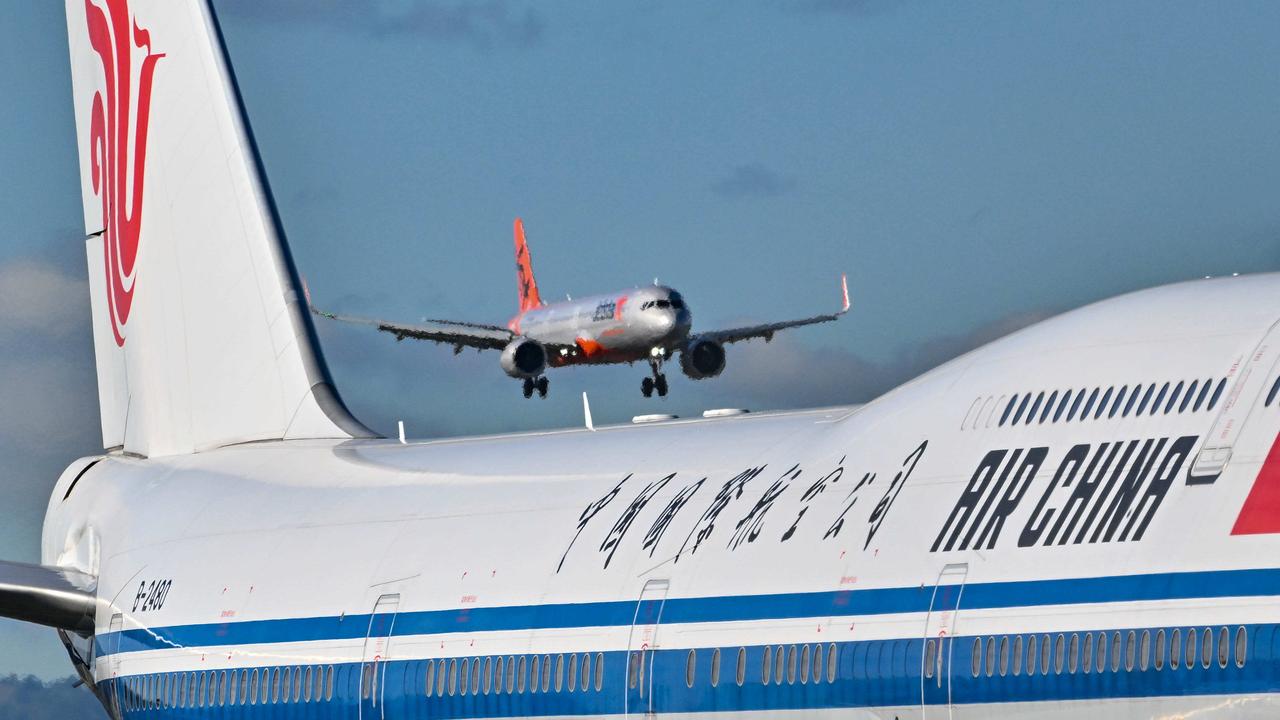Queensland State Budget 2018: Rebates expected to ease living costs
IF YOU live in this state, get ready to loosen your belt a little — thanks to new luxury taxes and a shock surplus, things are about to get a little easier at home.

QUEENSLAND Treasurer Jackie Trad has handed down her first State Budget today, delivering a surprise $1.5 billion surplus and putting an extra $200 million into people’s pockets.
In her Budget speech today, the state’s Treasurer and Deputy Premier said the Government “has a responsibility to help and we will do just that”.
“The Labor Government helps out those doing it tough”, Ms Trad said, before announcing Queensland households would be given $5.6 billion in concessions and rebates including on their power bills — a $200 million increase on the 17/18 budget.
The shock $1.512 billion surplus — which is three times the amount predicted in December — is in large part thanks to mining royalties.
In the past financial year, royalties from coal and gas poured $4 billion into the economy and the surpluses are expected to continue for the foreseeable future.
Increased dividends from government-owned corporations and a bigger slice of the GST pie for the state also contributed to last year’s surplus.
The Government is expecting an additional $148 million in 2018/19, $160 million in 2019/20, $110 million in 2020/21 and $690 million in 2021/22.
WINNERS
As well as the extra $200 million delivered to Queensland homes this year, the treasurer said her “responsible” first budget would be especially focusing on building infrastructure.
The State Government is forking out $45 billion over the next four years to build more infrastructure — a move that will increase Queensland’s debt but is expected to create close to 40,000 jobs in the process.
Brisbane’s $5.4 billion Cross River Rail Project will receive $700 million in funding for the next financial year.
This year’s infrastructure program is the largest since 2011, when Queensland was recovering from widespread and major flooding.
The Government will also invest $21.7 billion over the next four years into Queensland’s Transport and Roads Investment Program and 65 per cent of all of the state’s infrastructure funding will be spent outside the greater Brisbane area — a big win for regional areas.
Coming from a small business family herself, Ms Trad said her upbringing played a big part in the government’s decision to keep payroll tax rebates at 50 per cent for another year.
The rebates, which will cost taxpayers $26 million, are expected to assist more than 26,000 apprentices and trainees.
The Treasurer said the recent Fair Work Commission decision to increase the minimum wage by 3.5 per cent was encouraging but there were still a lot of “hard working Queensland families who battle through each day and are not keeping up”.
The state’s public health system was given a record $17.3 billion in today’s budget but AMA Queensland president Dilip Dhupelia said the mammoth spend is only a bandaid solution.
“It seems to be treating symptoms rather than the holistic long-term care of Queenslanders,” Dr Dhupelia told AAP.
“For weeks now the government has been talking about the obesity scourge that we have in Queensland, and the AMA has asked for a whole of government solution to our obesity crisis.
“This was not delivered today.”
Ms Trad has also committed $26 million to maintaining a 50 per cent rebate on payroll tax until the end of June 2019 which is expected to help apprentices and trainees.

LOSERS
First home buyers — who’ve scored a $20,000 kick-starter grant since 2016 — will see that cheque cut to $15,000 if they buy a house from July this year.
Five new taxes will also be introduced in 2018/19 — four of which will target the wealthy.
Owners of luxury cars, foreigners who invest in Queensland property, people who use online betting sites and 850 large holding owners that don’t have farms on their land will all be hit with new taxes.
If you spent over $100,000 on your car, you’ll be paying 2 per cent more on taxes and you’ll pay an extra 15 per cent tax if you’re betting online or with a company that isn’t from Queensland.
Foreign investors will also fork out 4 per cent more than the 3 per cent they’re used to for foreigner acquirer duty.
A $70-a-tonne waste levy is also expected to raise $1.3 billion in revenue over the next for years after the State Government announced it would no longer allow other states to dump rubbish in Queensland for cheap.
In her Budget speech today, Ms Trad said Queensland’s previous lack of a waste levy “encouraged a procession of dump trucks across our border”.
Despite the increased levy stopping other states from dumping rubbish into Queensland, there are fears the waste levy could be passed down to local councils and then onto residents.
Ms Trad claims this won’t happen as more than 70 per cent of the funds will be used to subsidise local councils for the extra costs.
The Government will continue its borrowing to help pay for all of the infrastructure with the state debt levels expected to hit $83 billion by 2022.
The fees and charges collected by the government are also going up by 3.5 per cent — the same as the minimum wage increase — which means getting caught by the cops or paying for your car registration will be 3.5 per cent more expensive.
Speeding drivers are also going to be under stricter surveillance — the government is setting aside more money to combine red light and speed cameras which are commonplace in states like New South Wales.
QUEENSLAND STATE BUDGET AT A GLANCE
The Treasurer said her first budget “delivers for all of Queensland”.
Despite the state’s debt increasing to $83 billion by 2022, Ms Trad said the spend was necessary to fuel Queensland’s rapid population growth.
“It’s a Budget that gears our state for growth,” Ms Trad said. “It’s important to understand what we’re borrowing for.
“Debt is stable, it is sustainable and it is responsibly funding much-needed infrastructure for our communities and our economy.
“We make no apologies for borrowing to invest in infrastructure. It’s the right thing for jobs today, but it’s also critical for economic productivity in the future.”
Here’s the state budget in a nutshell:
• Operating surpluses in the coming years, starting at $148 million in 2018/19, $160 million in 2019/20, $110 million in 2020/21 and $690 million in 2021/22.
• A 3 per cent growth to the state’s economy in 2018/19.
• Queensland’s debt will climb every year over the next four years, from $70.8 billion in 2018/19 to $83 billion in 2021/22.
• $5.6 billion in concessions for Queensland households, a $200 million increase on last year.
• $14 billion towards education and training — since March 2015, the state has employed 4000 more teachers.
• $45.8 billion in infrastructure spending over the next fours years — an increase of more than $3 billion on last year’s budget — supporting 38,000 new jobs in the coming financial year.
• Upgrades and improvements to 48 state primary and high schools across Queensland.
• A $17.3 billion operating budget for the health system, plus $985 million in capital spending on health services and facilities.
• $330 million over five years on measures to protect the Great Barrier Reef.
— With Wires



